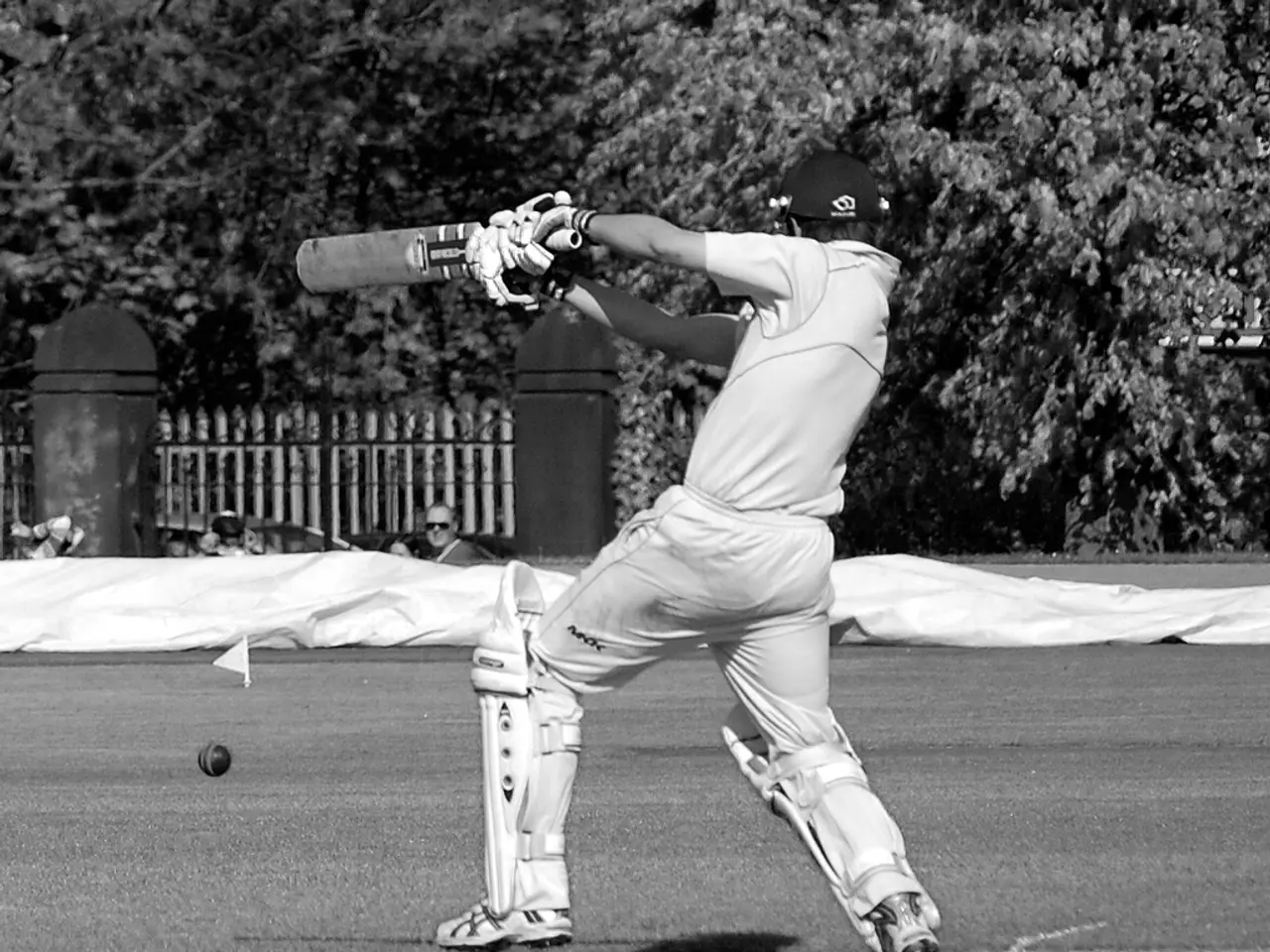"R Ashwin Questions England's 'Double Standards' in Old Trafford Draw Scandal: 'I Would Have Bowled the Full 15 Overs'"
In the final session of the Old Trafford Test match between England and India, a unique controversy arose that has sparked debate among cricket enthusiasts and experts alike. The controversy revolves around the rules regarding the final hour of a Test match and the agreement for a draw.
According to the Laws of Cricket, a Test match is not officially over until the scheduled overs are completed or both captains agree to end the match early by mutual consent. This means that even if the match situation suggests a stalemate, the game must continue unless both captains agree to a premature end.
During the last session, England captain Ben Stokes offered a draw, which India declined, choosing instead to continue batting and pursue personal milestones such as maiden centuries for players Washington Sundar and Ravindra Jadeja. This decision led to controversy as England considered the match effectively over and expected India to accept the draw offer with about an hour left in the game. However, India's refusal meant the match had to continue for the mandatory remaining overs (15 overs) of that final hour.
Former India spinner R Ashwin has criticized England for this controversy. He praised Joe Root for his sportsmanship during the draw, as he did not act like Brook when bowling off-spin at the end. Ashwin expressed disappointment that Stokes did not bowl the remaining 15 overs with Brook, as he believes it would have been a great advertisement for the spirit of cricket.
The controversy reached a peak when Ben Stokes made a sarcastic comment to Jadeja, asking "Do you really want to score a hundred against Harry Brook?" Jadeja responded by asking "What do you want me to do? Just walk off?" Ashwin also criticized Harry Brook for bowling slow looseners over his next three overs, allowing Jadeja and Sundar to comfortably reach their centuries.
Washington Sundar, promoted to No.5 for the first time, staged a gritty rearguard alongside Ravindra Jadeja, with both batters inching toward centuries. Brook delivered a string of slow looseners over his next three overs, allowing Jadeja and Sundar to comfortably reach their respective centuries. Sundar finished with 80 runs not out, while Jadeja scored 89 runs not out.
Ashwin questioned whether the experts will talk about Crawley and Stokes' roles in the draw in the coming days. He also expressed pride in the Indian team for their performance in the draw at Old Trafford and believes that India were well within their rights to bat in the final hour after refusing Stokes' proposal for an early draw.
The match ended in a dramatic draw after India agreed to shake hands, with Sundar having completed his ton. However, the controversy has left a bitter taste for many, with Ashwin questioning England's double standards in the situation and criticizing Crawley and Brook for their roles in the draw. Ashwin believes that Crawley's statement, "Is this how you want to make a hundred? Well, you should've batted faster if you wanted yours," was not appropriate.
In summary, the rules make it clear that a Test match can only be concluded early if both captains agree. The final hour is often a time when such agreements are discussed or offered, but there is no rule forcing acceptance of a draw. This formed the basis of the Old Trafford controversy, with England seeking a premature draw and India opting to continue playing until the mandatory overs were completed or a result was achieved.
Sports enthusiasts and cricket experts are debating over the controversy that occurred during the final session of the Old Trafford Test match between England and India. Former India spinner R Ashwin criticized England's decision to offer a draw, believing it was a great advertisement for the spirit of cricket if Ben Stokes had bowled the remaining overs with Harry Brook. Ashwin also criticized Harry Brook for bowling slow looseners, allowing Washington Sundar and Ravindra Jadeja to comfortably reach their centuries.








